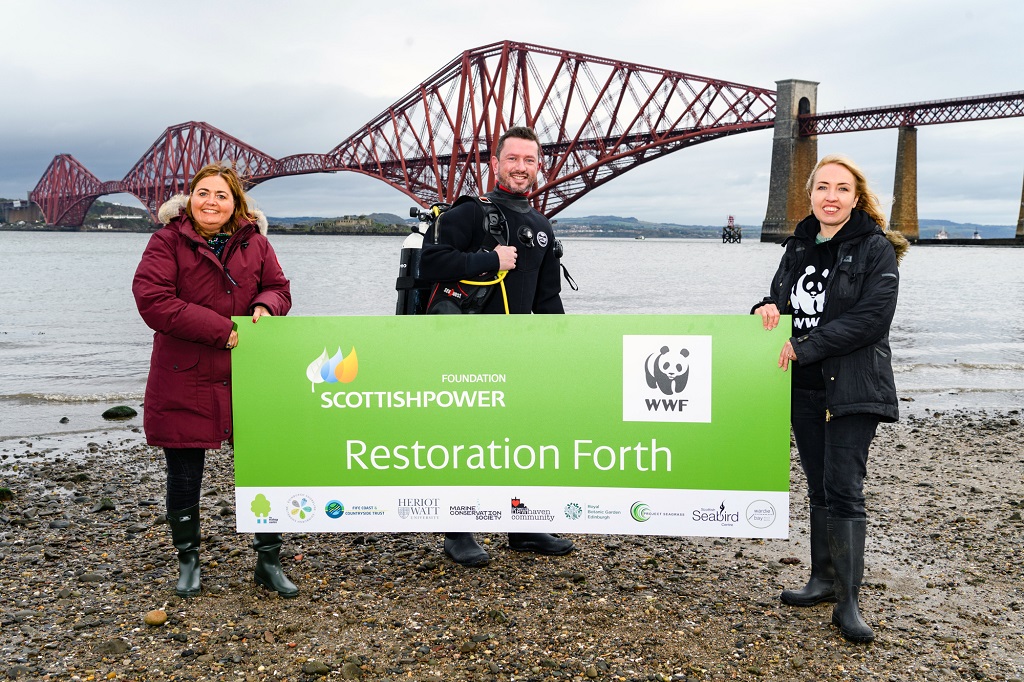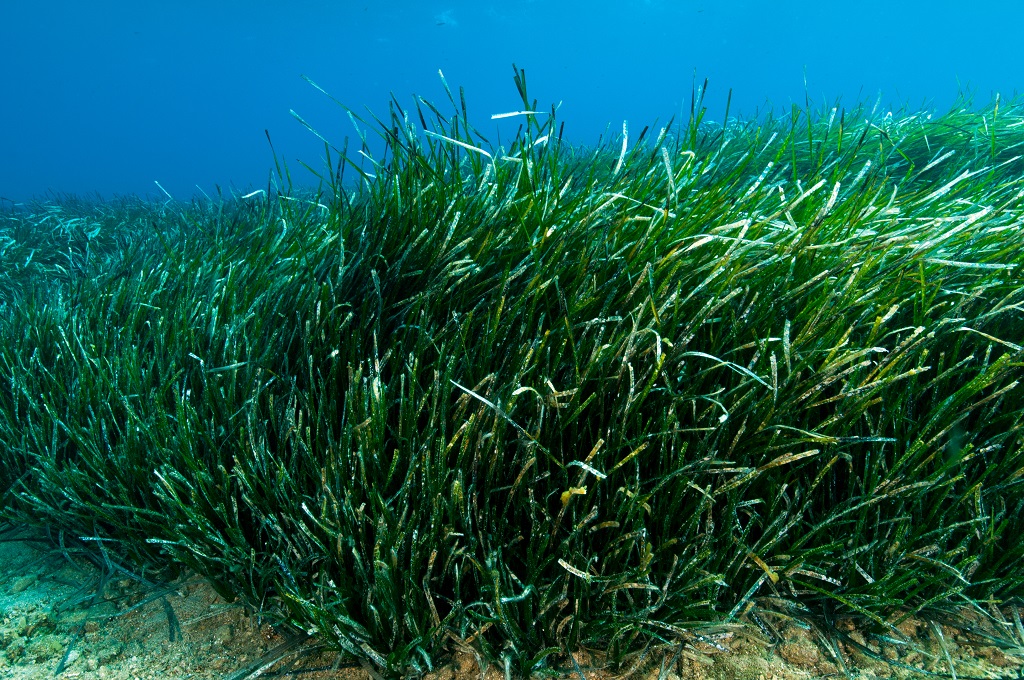
Bringing life back to the Firth of Forth in new project
Seagrass meadows and oysters are being put on the path to recovery in the Firth of Forth in a major marine restoration project that will enhance the local environment and help tackle climate change.
Announced days before the COP26 UN Climate Change Conference gets underway in Glasgow, ‘Restoration Forth’ – supported by the ScottishPower Foundation – will see up to £600,000 awarded over three years from the Foundation’s Marine Biodiversity Fund, which was created to mark the year of COP.
The first award from the fund – and the biggest-ever grant provided by the Foundation – Restoration Forth will be managed by WWF, the leading independent conservation organisation, in partnership with scientists, charities and local community groups. They will work together to design a blueprint to restore and sustainably manage seagrass and oyster habitats for a thriving Firth of Forth.
Often described as the ocean’s unsung hero, seagrass provides important habitat for marine life and is an incredible tool in the fight against climate change. Oyster reefs – which once flourished in the Forth – remove pollutants and provide sanctuary for a vast array of marine life.
Working closely with local communities, the restoration of these two species will enhance the coastal and marine environment of the Forth, support nature-based solutions to address climate change, and create opportunities for local people to reconnect with the sea.
ScottishPower Foundation’s grant is the first funding contribution towards the £2.4 million total cost of the project, which aims to restore up to four hectares of seagrass and 10,000 oysters per year by the end of 2024.

(From left) Melanie Hill (ScottishPower Foundation Executive Officer and Trustee), Richard Lilley (Diver), Lyndsey Dodds (WWF Ocean Recovery Manager), after placing oysters and seagrass in the Firth of Forth (Photo: Ian Georgeson)
Ricardo Zanre, WWF’s Ocean Restoration Programme Manager said: ‘Coastal habitats like seagrass meadows and oyster reefs are vital to a thriving marine environment but across the UK we’ve seen their steep decline over the last century.
‘This is a concerning loss in so many ways – for the homes they provide for marine life, their value in absorbing carbon dioxide and improving water quality and their importance as heritage for coastal communities.
‘The Forth is an amazing example of a place where local communities working to restore coastal habitats can not only help to bring back these benefits, but also to strengthen the connection between nature and community. We’re hugely grateful to the ScottishPower Foundation for sharing this vision and their support in helping to achieve it.’
Melanie Hill, Executive Officer and Trustee of the ScottishPower Foundation, said: ‘We’re really excited that Restoration Forth is the first project supported by our Marine Biodiversity Fund. With COP26 about to get underway, the climate emergency is very much at the forefront of all our thoughts and there is no time to waste.
‘This project – supported by the biggest-ever grant awarded by the Foundation – is a great example of how we can take action now to restore our coastal habitats. Thriving marine environments are crucial if we are to tackle the biodiversity and climate crises and Restoration Forth will allow us to make a positive impact in partnership with local people and communities, who are at the heart of the Foundation’s work.

Seagrass in the wild of the seas
‘A large part of our funding will go towards developing a skills development programme for local communities to protect their restored coastal environment. This incredible work in the Firth of Forth will provide a blueprint for restoring ecosystems through a collaborative community approach.
‘It has the potential to be used as a model for marine biodiversity restoration projects across Scotland and around the world, ensuring the Foundation will help create a positive climate legacy for years to come. That’s exactly what we wanted to achieve when we created our new fund and why we’re so proud to work with so many esteemed partners to help turn this project from a vision into a reality.’
Partners supporting WWF to deliver Restoration Forth include Edinburgh Shoreline Project, Fife Coast & Countryside Trust, Heriot Watt University, Marine Conservation Society, Project Seagrass, Royal Botanic Garden Edinburgh, Scottish Seabird Centre, The Ecology Centre, The Heart of Newhaven Community and Wardie Bay Beachwatch.
The ScottishPower Foundation was established in 2013 to make a significant and lasting contribution to society, enhancing the lives of people living in communities throughout the UK. It provides funding to help support the advancement of education, environmental protection, arts and culture and citizenship. It also supports charities who aim to provide relief from poverty, disability, or other disadvantages.
TAGS

